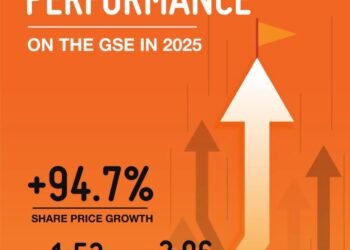A Senior Lecturer at the University of Ghana and the Director of Ali-Nakyea and Associates, Dr. Abdallah Ali-Nakyea has advised the government to revise its laws on stability clauses in petroleum agreements on the basis that the sector is now de-risked.
The tax expert explained that when the country first discovered oil, the government gave such incentives in the form of stability clauses to encourage investors, considering the risks involved in oil exploration.
However, as it stands now, Ghana’s status as a petroleum-producing country is established and many investors are moving in for oil production, thus the de-risking of the sector, he opined.
“… A lot of our laws and agreements also need revision. Because, for example, if you take petroleum, at the time, we weren’t petroleum-producing, we had just discovered oil. So we made very juicy incentives in agreements for them to come. But today, where we are, everybody knows we have the oil and they are producing.”
The nature of petroleum agreements, the degree of risk involved and the capital required to carry out exploration and exploitation of oil fields, warrant the inclusion of stability clauses in contractual agreements. Otherwise, the degree of risk may disinterest investors from entering into long term contracts.
While necessary, this comes alongside other reasons that led the government to include stability clauses in such agreements to serve as an incentive to encourage investors in developing the sector.
This notwithstanding, Dr. Ali-Nakyea underscored that the government can generate a lot of revenue from renegotiations on stability clauses that had given a lot of incentives to foreign investors for oil exploration when the country first discovered oil.
“So a lot of terms that we gave need revision. Where is the risk? It has been de-risked. But if we have stability clauses in them that they can enjoy this for say 30 years; Can we renegotiate? Otherwise, you can’t wait to say, I am waiting for 30 years and [then] renegotiate. That is not going to be today!”
Dr. Ali-Nakyea, Director, Ali-Nakyea & Associates
He made these remarks while interacting with the Vaultz News on whether the GRA could reach its revenue target this year.
GRA on track to realizing projected revenue
Last year, the Authority revised its revenue target to GHS 42.7 million by mobilizing in excess of GHS45.3 million. This resulted from the blow that businesses and the economy as a whole had to endure from the COVID-19 pandemic.
Nonetheless, the tax expert believes that the Ghana Revenue Authority (GRA) is on track towards realizing its projected revenue of GHS55.8 billion for the year.
He noted that the revenue projection is achievable but would require an all-hand on deck approach. He averred that the number of registered tax payers is increasing gradually, and this is a good sign.
Based on statistics from the GRA, the number of registered tax payers has increased by about 5 million people from 1.5 million in 2018.
“… If they exceed all the better… We all need to give the support. Meanwhile, we have to use this next quarter to be able to evaluate. If everybody is to file returns by end of this month, then we have up to the second quarter to see the performance of the first quarter. [However], this will not be too indicative but it will still give a sign whether there is hope.
“Because whatever agreement [made] in the first quarter will surely roll out in the second quarter. So if you want to get an objective assessment, it will be in the third quarter. But then… we have only one quarter to go.”
Furthermore, he highlighted that domestic sources of revenue mobilization also include other secondary sources such as non-tax revenue sources. While measures are being put in place for revenue mobilization via taxes, so should the government be interested as much in the other sources, he maintained.
Attention should not be so much concentrated on primary revenue sources to the loss of all else, he cautioned.
READ ALSO: Energy sector challenge, a mini crisis- Dr. Sulemana























